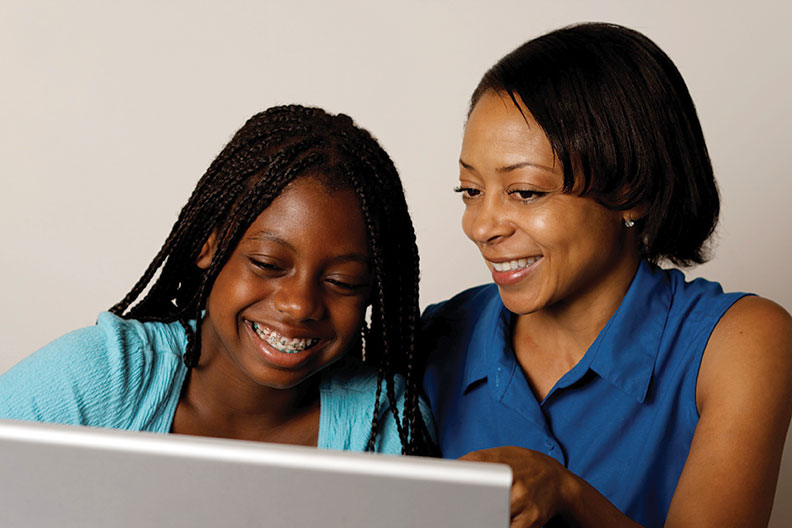Reflecting Back on Your Teen Years to Sharpen Your Parenting Skills
Does your 11 year-old whine about not getting to use social media? Is your 16 year-old asking for permission to stay all night at the prom after-party?
In the age of “What to Expect When You’re Expecting” and ‘how-to’ guides for time-outs, many of us thought that parenting through the early years was going to be the hard part. It is a rare parent who spent the pregnancy planning for how to handle the teen-to-adult years. But this is when the stakes get even higher and parents have the opportunity to have as much, if not more, influence over their children’s lives. Contrary to popular belief, the older your child gets, the more your child needs you. Parenting is a lifelong process that merely begins with childbirth.
Were we any different when we were younger? What we experienced then likely was not conceptually different from what our kids are dealing with. Like them, we wanted to feel mature and independent. We wanted to try new things without our parents breathing down our necks. We felt oh-so grown up and wanted to give our new selves a test flight.
So what year was it when you were their age? We did not grow up under rocks. We were children of Vietnam and the peace movement, Roe-v-Wade, and Saturday Night Fever. Eric Clapton sang about cocaine, and herpes was the sexually transmitted disease of the decade (HIV didn’t show up in the public eye until 1985). Some of us were timid, rarely putting toes in the water. Others waded in to our knees. And a few jumped right in. We got tossed around the waves a bit, but most of us emerged, dried off, and were stronger for the lessons learned.
But our children live in a different age—a time where they are forced to create an image and promote it on social media before they even realize they are acting as their own publicity agents. They feel compelled to package and post the drama of their lives before they can even process it. It’s like giving 12 year-olds the keys to a car. Driving the little track at Six Flags doesn’t qualify them to drive on the streets—even they know that—but this is what they are dealing with.

Childhood has become “adultified,” even sexualized, sometimes long before they know what sex is.
Technology has changed the context but not the content of our young people’s lives. The times are different, but the biology is not. Kids go through developmental stages just like we did. They look to define their place in their peer community. They take on more responsibilities and want more privileges to go with that. They acquire hormones and curiosity about sexuality. They want to reach beyond their safety zones to try new exciting, thrilling things. They want to be free to be unsupervised as they try on adult activities.
Today’s young people learn, live, and love just like we did. But the water is more dangerous. Most are resilient and will grow stronger through their experiments and even mistakes. Still others will be vulnerable to insecurity, confusion, and frustration that can lead to anxiety, depression, eating disorders, high-risk behaviors, etc. Many teens resist parental control of their teen inclinations. Others secretly wish for their parents to intercede and set limits they are not strong enough to set themselves.
So what can we do? We must be grownups and stand up for and to our children. It is our privilege as well as our obligation. It is also our job to be loving, proactive, and supportive of our children as they go through the normal transitions that will make them healthy adults one day.
It is a parent’s duty to understand the technology they put in their children’s hands and to set limits on the use of those tools. If your child wants access to an online activity (social media, games, apps, etc.), make it your job to know as much as you can about it. Have her show you her Sims family. Review their social media accounts on a regular basis—with them—so they can educate you about what their world is like. Find out the “who, where, what, why, and how’s” about the after-party or the latest social media app. Make sure your standards for safety and decency are satisfied, set a limit that matches your family’s values, and hold your ground when challenged by the other peers (or even parents!). Find other parents who feel the same way to back you up. It can be hard to be the one parent who says “no” when all the others say “yes.” Your child will learn about integrity even in the face of a boundary they don’t like.
Use difficult situations as teaching opportunities, approaching your child about your concerns in a calm and loving manner. Otherwise you risk that they will hide things from you in the future. But also be willing to be the bad guy. Be the parent whom a child can blame for not letting them go to that party. But do it in your child’s best interest and with their cooperation. Ask them to help you understand where they need help setting limits or drawing a boundary. Talk early and often so that you know in advance when a social situation may get a little dicey, and be prepared to back your kid up and pull them out. Don’t judge when you see or hear of something you don’t like. Instead, ask questions—calmly and compassionately, showing them that you care and want to understand. Let your child guide the conversation; most certainly he or she will talk themselves toward an appropriate solution if we can just stay quiet long enough for them to hear themselves think. Most importantly, the better you handle a situation now, the more likely your child will be to come to you on their own with a problem in the future.
Parenting teens and young adults is not for sissies. It’s the hardest job you will ever love—and the most important one.


